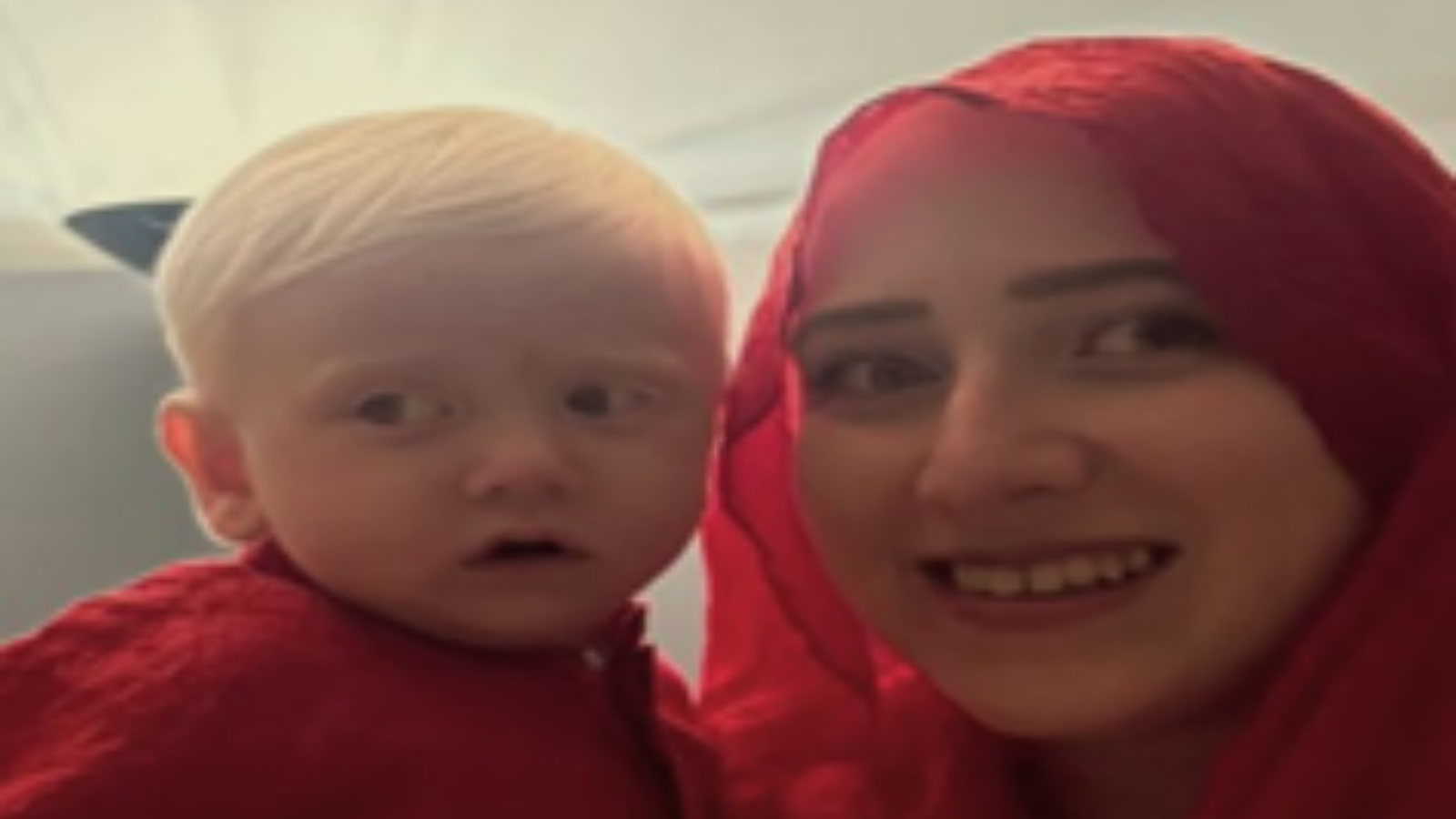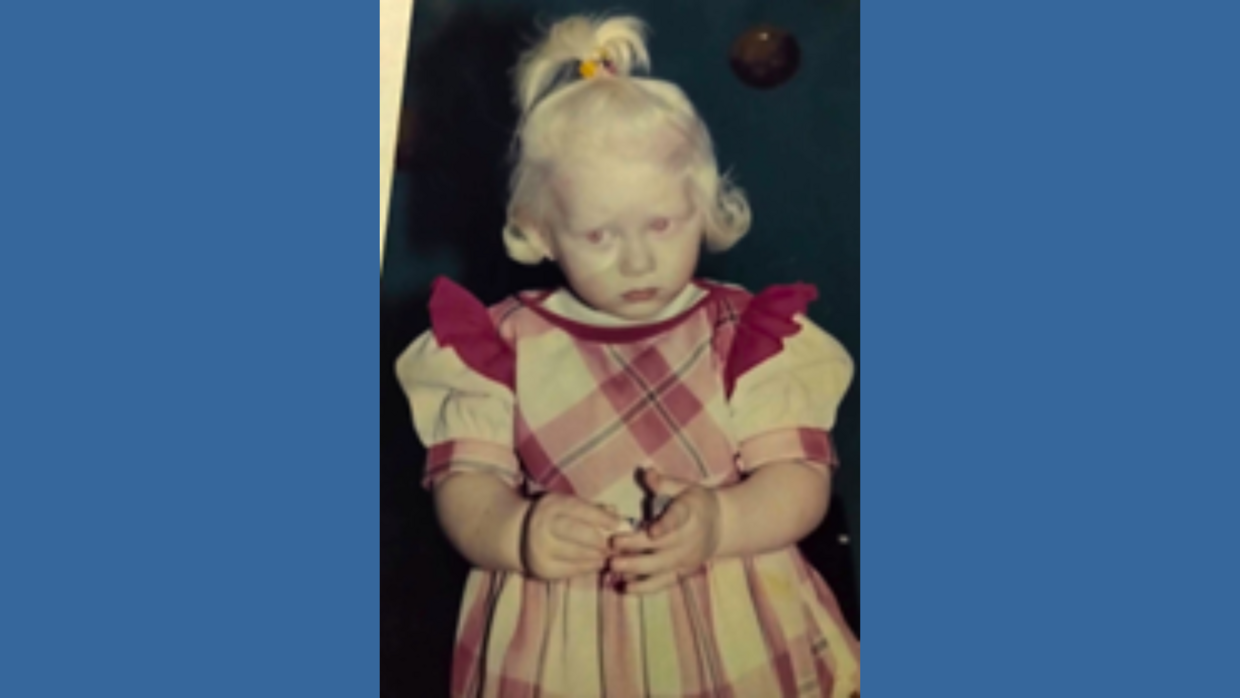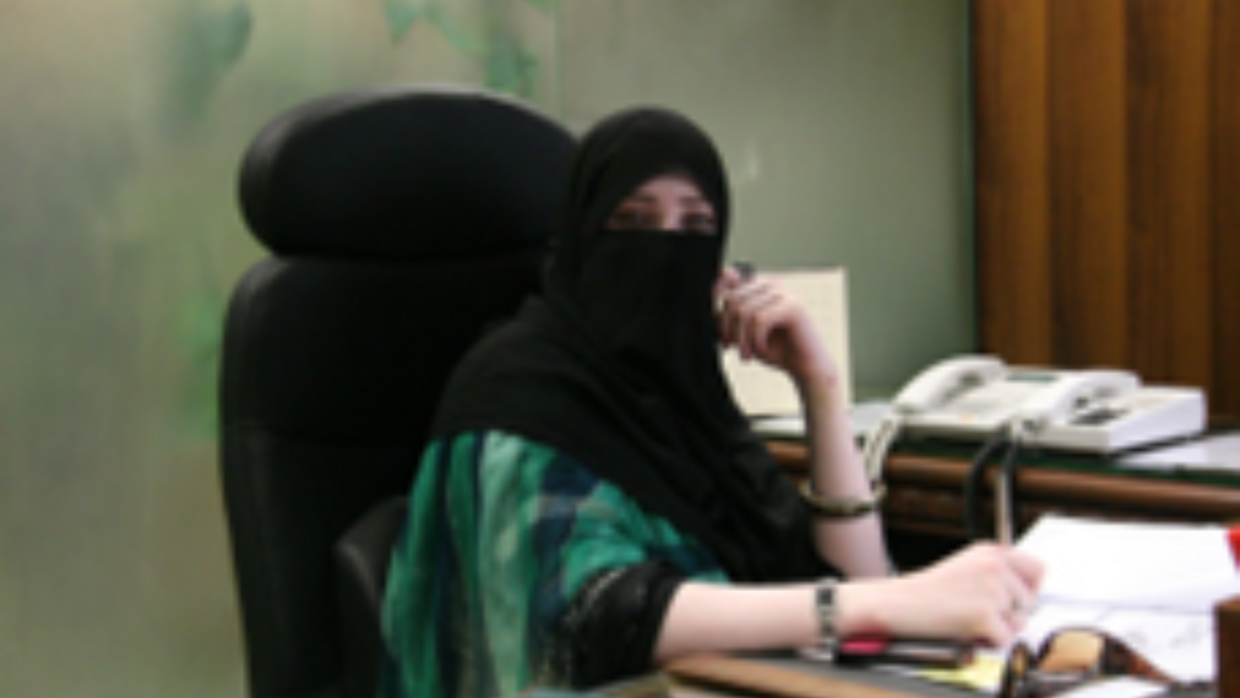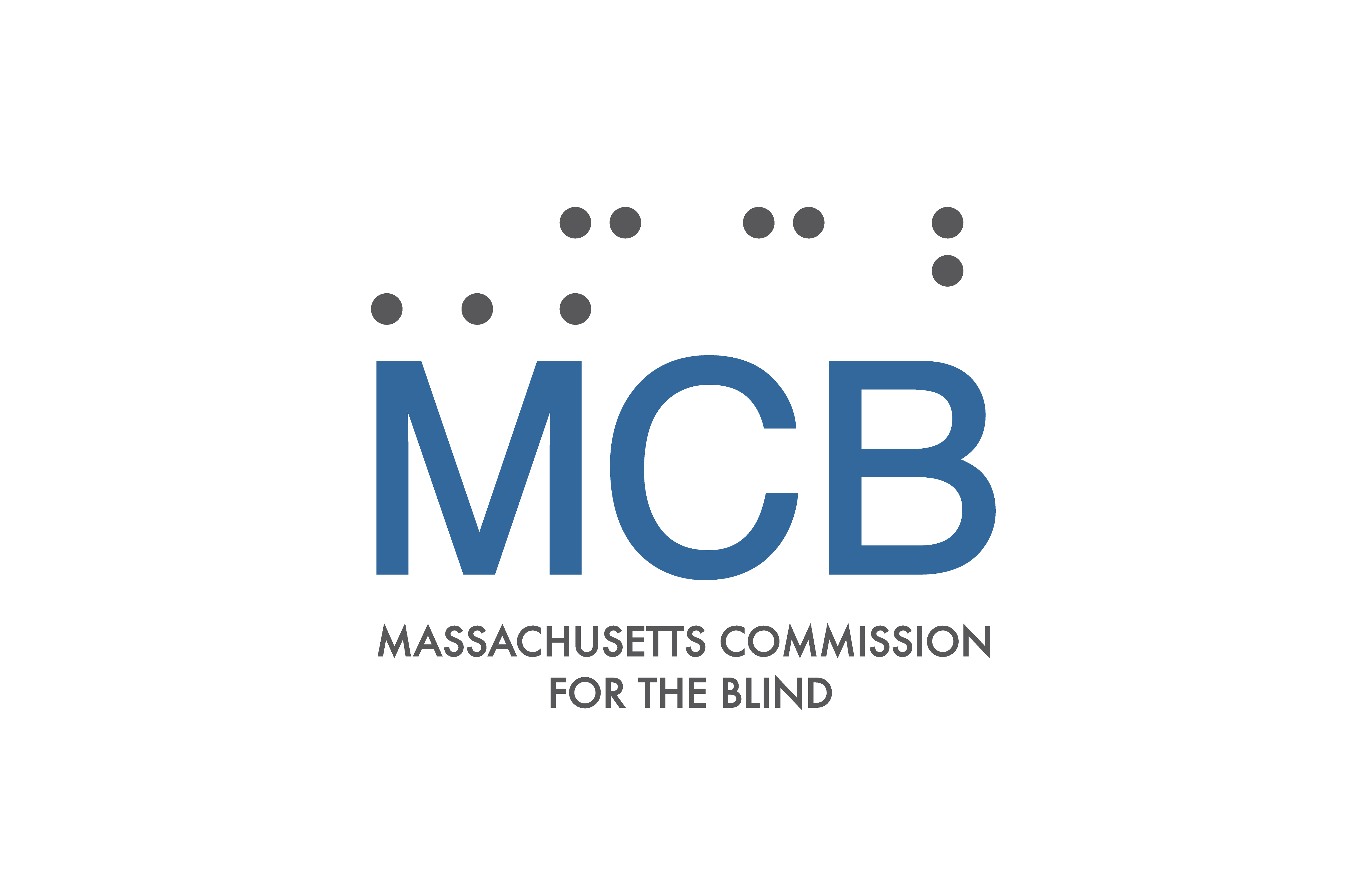- Massachusetts Commission for the Blind

“So, how is disability treated in your country?” This question was asked recently during a training session I attended for work, and in a sudden flashback, I saw a four-year-old albino girl, excited for her first day at school. She was confident in her learning abilities, yet unaware of her disability and how it would be treated outside of home. That moment took me on an emotional rollercoaster, pushing me to reflect on a journey that many young ones are ready to embark on. This writing aims to share a few sweet and sour memories from my life, hoping to find a common connection and understanding of my disability with my readers.
My name is Sundus Arif, and I am a 38-year-old albino, born in Srinagar (Jammu and Kashmir), now part of India, and raised in Lahore, Pakistan. I was born to two healthy parents who had no idea how their first child would reshape their lives, mindset, and perceptions of disability. My mother, then 21, was entirely unaware of the term albinism, its causes, or its consequences. Her main concerns were how the world would treat a baby who didn’t seem "normal," and how the parents, who seemed very "normal," would manage. Those were simpler times, and initially, everyone - including her gynecologist - thought my father was a foreigner (a white man with blue eyes and blonde hair).
Before diving deeper into my life, let’s define my disability: albinism. According to the National Albinism Organization, albinism is an inherited genetic condition that reduces the amount of melanin pigment, resulting in very light skin, hair, and eyes. People with albinism often have vision problems that cannot be corrected with eyeglasses, leading to low vision and sensitivity to sunlight.
Now, to return to the question of how disability is treated in our country: Since Pakistan’s state religion is Islam, Muslims generally treat people with disabilities with kindness and empathy. However, there is always a smaller, insensitive segment of society that deeply impacts people with disabilities. For example, words spoken out of carelessness or amusement can scar someone forever, and, in my case, it was the other way around.
Early Childhood
Being the firstborn comes with perks and privileges, as one remains the focus of attention until the second child arrives. But in my case, I remained conspicuous due to my different appearance. Visitors would think I was an imported doll who could talk and run around, while others thought I was a scary creature with red eyes and advised their children to stay away from me.
Since albinism brings various challenges, each with many memories, I’ll focus on just a few. Regarding light sensitivity, my mother recalls that I was two-and-a-half-years-old when they took me on a boat ride. After about an hour at sea, they had to turn back because I was crying from the extreme sunlight. It was a lesson learned the hard way - sunlight and albinos do not mix. Our eyes are so sensitive to the sun that we can barely see, and excessive sun exposure can cause sunburn, which may lead to skin cancer. (Thus, less exposure to the sun is advisable, with maximum skin coverage and sunblock.)
Another issue is low visibility. I remember when I was in kindergarten, and my mother came to pick me up. She was standing at a distance, and a classmate asked, “Sundus, is that your mom? I think she’s here to pick you up.” I responded, “No, that’s not my mom,” out of sheer embarrassment because I couldn’t see that far. My mom had to call out my name and come closer for me to confirm it was her. From this, we learn that calling someone’s name from a distance can be confusing for albinos, who may lose their sense of direction and become embarrassed or emotionally overwhelmed.
Visiting an ophthalmologist almost became a hobby. Let me explain why. My teachers had told my parents that I should stand in front of the blackboard to take notes, blocking the view for others. Additionally, my three younger, "normal" siblings would complain about me watching TV too closely. This gave my parents a fair idea of where to take me. Every year, we visited an eye doctor, and my poor mother would always hope that the doctor would have made some groundbreaking discovery that could make me see like a normal person. But no. The check-up would always yield the same result: I was advised to wear my eyeglasses all the time, wear sunglasses when going out, and watch less TV to avoid going blind. By the time I was five or six, I had become such an expert patient that I would go into the clinic, read the Snellen chart quickly, and be able to identify up to the third row of letters. Lesson: Don’t act too smart, as doctors will ultimately know how much you can see by reading your eyeglasses too.
Teenage and Adulthood
There’s one thing that Humpty Dumpty and I have always had in common: “A Great Fall.” To this day, I am famous in my family for falling almost anywhere and breaking things. As a child, I was ashamed to wear both spectacles and sunglasses - eyeglasses because no one else at my age wore them, and sunglasses because I didn’t want anyone to call me "blind." One time, while out on a picnic with my cousins, we came across a drain in the middle of the road. My cousins jumped over it, but I misjudged the width and fell right into it. Falling wasn’t the only problem; a school trip was happening nearby, and the buses were parked beside the drain. The entire school watched my clumsy fall, and I didn’t want to get out of the drain, but thankfully, they pulled me out, and now I get to laugh about it.
There were many instances when people greeted me on my way in or out of school, or waved to me at family events, but I couldn’t see them, and they thought I was rude for not replying. People would comment on my eyes, saying that they shook and were red, as if I didn’t know. Astigmatism and red eyes are two common issues for albinos. Astigmatism occurs when the cornea or lens of the eye isn’t perfectly curved, and red eyes happen when the blood vessels in the back of the eye become visible, especially in certain lighting conditions. I used to get upset with people’s reactions, but I was too ashamed to articulate and accept my condition because I didn’t want people to pity me, treat me differently, or think I couldn’t do certain things. Little did I know that it “just doesn’t matter” what people think.
At 13, my family sent me to the U.S. with my grandfather to get my vision checked and explore better solutions. Unfortunately, nothing helped. But my grandfather, truly believing in my abilities, made me travel alone from Chicago to LA, with a layover in Las Vegas, where I had to change gates. There were no cell phones back then, so the only advice I got was to ask anyone at the gate for help. Since I was fluent in English, language wasn’t an issue, but my vision was. Guess what? I made it to LA and back! That one trip opened many doors for me, and it made me realize that I CAN DO IT!
After the U.S. trip, I started leading a more confident life. Eventually, like many other girls, I wanted to get married and start a family, but as expected, no one showed interest. If someone did, their parents would often disapprove due to the fear of having an albino child. Since I was a good student, I shifted my focus from love and marriage to pursuing a career in journalism. By the time I graduated with an honors degree, I had learned to accept my disability and make fun of myself before anyone else did. My classmates and teachers never knew that I couldn’t see most of the PowerPoint presentations in class. I would always receive applause for being a confident presenter, and of course, I was - because I couldn’t see how many people were watching or smiling at me (some perks of albinism).
To me, accepting my disability made me more daring and experimental. I started dyeing my hair, eyebrows, and eyelashes. Maybe deep down, it was an attempt to look “normal.” To my surprise, the world changed. People started noticing my eyes and wanted to see my full face, as I usually wore a niqab (a face covering), which they assumed I wore to hide my appearance. In reality, it was a religious choice. More people wanted to be my friends, and proposals started pouring in. By then, I had come to realize that people just like "fake stuff," and I decided to wait for that one person who would choose me as I am and see the beauty within me.
In the next ten years, I worked as a news reporter, communications manager, and admin officer, while continuing to explore the world. Fortunately, I come from a large, well-connected family, so I had relatives everywhere I went. I traveled alone to the UK, Scotland, Turkey, the Middle East, Qatar, Saudi Arabia, and finally decided to pursue a master’s in media and communication research in Germany. I mention these travels as achievements for someone like me, who can’t even cut her toenails but can travel alone. I hope this motivates readers to understand that disability should never stop you from dreaming big and moving forward, because to me, life has only one direction: FORWARD!
Disability and Parenthood
Moving forward, I ended up marrying a person who believes in my abilities more than I do, and who pushes me to break stereotypes and experience life to its fullest. We have two beautiful children, and the second one happens to be an albino, as many expected. The moment I saw him, I took a deep breath and embraced myself for another journey, but this time, I am familiar with the roads and their ups and downs. He won’t struggle as much because he was born in the U.S., where disabilities are not only better recognized but also well-supported. Public departments like the MBTA (Massachusetts Bay Transportation Authority) and MCB (Massachusetts Commission for the Blind), along with agencies like FCSN (Federation for Children with Special Needs), have played a significant role in my life, introducing me to the resources and opportunities available for a successful future. I admit I still have limitations, such as not being able to drive or go out alone with my children due to my visual impairment, but life is beautiful when your partner is encouraging.
Special Education and Albinism
Since early childhood, I have been the only albino in every setting I entered, including school, college, university, and the workplace. As a result, people didn’t know how to deal with my disability. They all thought I was a beautiful woman with blue eyes. How could I possibly have vision problems? In the tenth grade, for the first time, my father wrote to the education department to request font enlargement for my board exams. I ended up getting a newspaper-sized question paper. Other students at the exam center thought I was a foreigner and that I had a special test paper (haha). I won’t lie - I did enjoy that feeling of being special.
In Pakistan, special education still has a long way to go. The government is working closely with the UN to establish disability identification criteria, followed by the development of special education schools and training for teachers. Currently, public educational institutions offer disability quotas, but they are often subject to corruption, while private institutions are unaffordable for many. As a result, most students with disabilities attend regular schools, helping themselves or, if lucky, benefiting from dedicated teachers like I did.
I would like to conclude by giving a huge shout-out to my enormous support system - family, friends, colleagues, and teachers - who have helped me dream big and achieve big. They have made me fearless and emotionally strong for my survival. They have taught me how to channel my energy towards positivity by ignoring the negative and turning it around for my own good. I firmly believe that “IF I AM DIFFERENT, I WILL CREATE A DIFFERENCE.”
If you would like to share your story with the Massachusetts Commission for the Blind and be featured in a Consumer Spotlight, please email us at mcbinfo@mass.gov.


